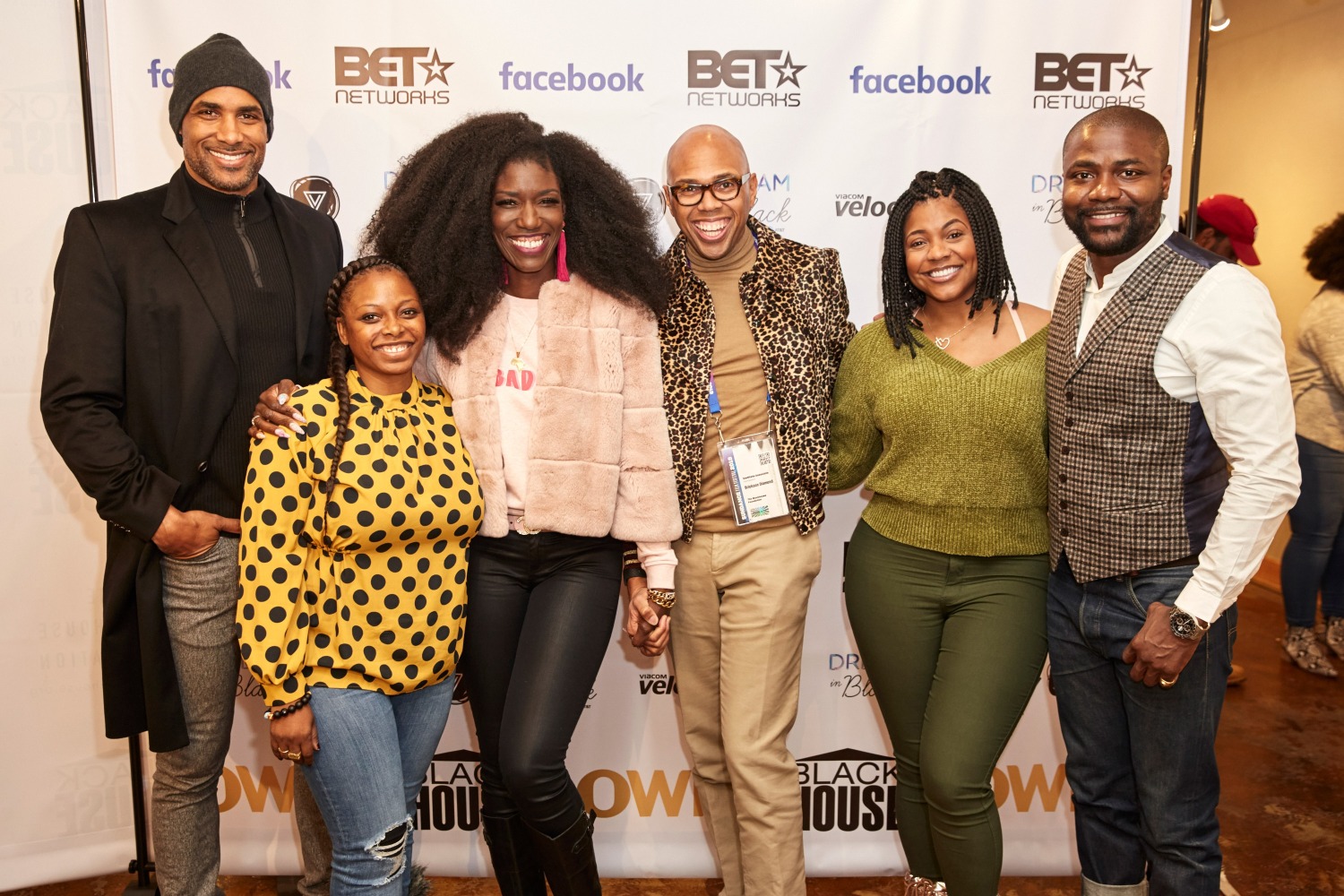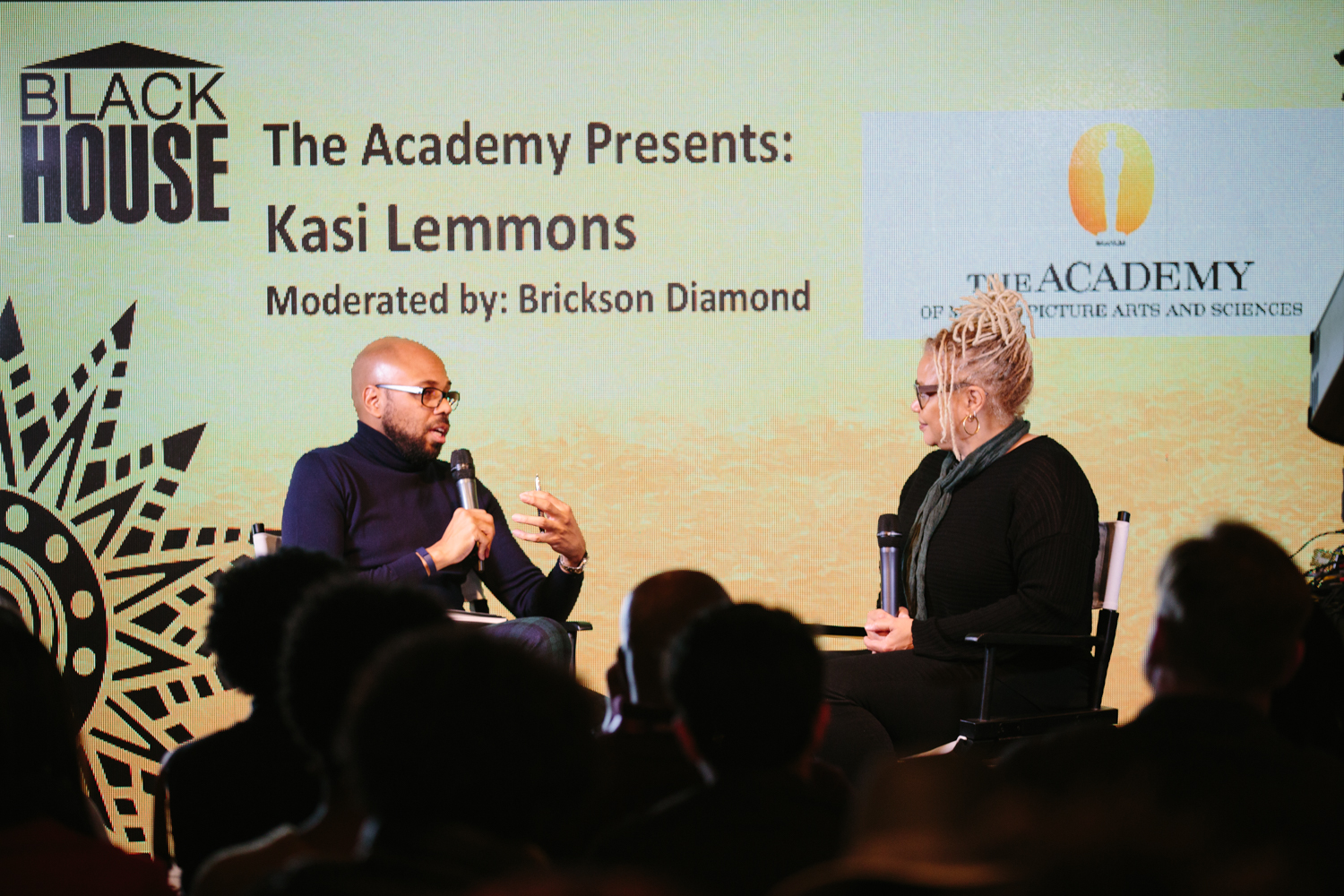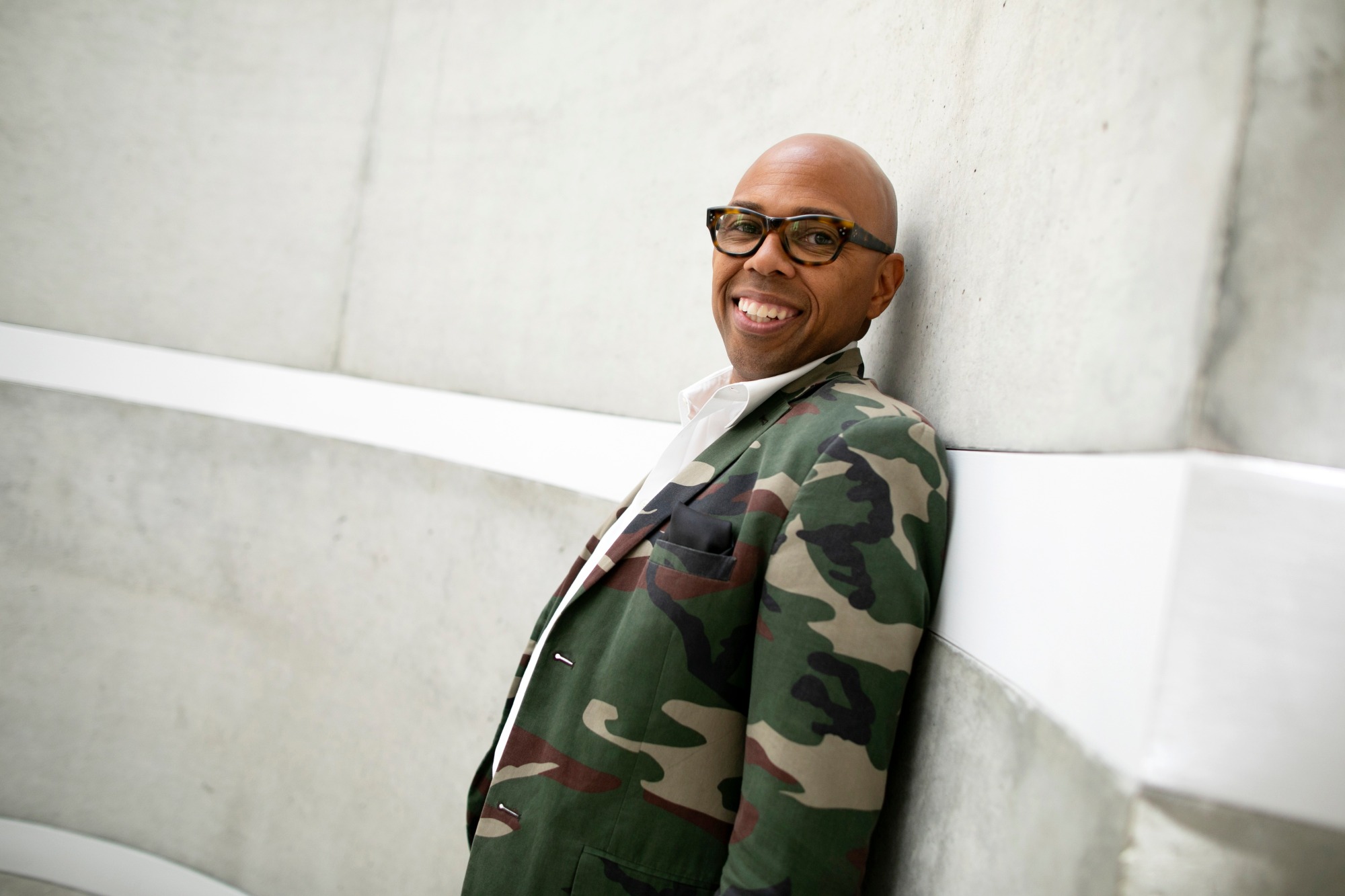
Stephanie Mitchell/Harvard Staff Photographer
Lights, camera, access
“Diversity is being invited to the party; inclusion is playing music I want to dance to, and serving food I want to eat.”
Throughout his two-decade career in business and finance, Brickson Diamond, M.B.A. ’99, always had an interest in helping talented people of color rise to the level of success they deserved.
“Diversity is being invited to the party,” he says. “Inclusion is playing the music I want to dance to, and serving the food I want to eat.”
So when he went with some friends to the Sundance Film Festival in 2006, a few things leapt out at him. First was that the movies were stunning, and everywhere the Southern California resident looked he saw films being bought, careers being made. But there was also this: “Why aren’t there any black people here?” he wondered. “Why aren’t we in this space?”
Not one to wait around for someone else to answer his question, Diamond, with entertainment industry veterans Ryan Tarpley and Carol Ann Shine, co-founded the Blackhouse Foundation in Los Angeles to address the problem.
Their goal was to educate and promote African American writers, producers, directors, and executives. In the past 13 years they’ve taken steps to support black filmmakers at festivals, host events to connect them with financiers, and design fellowships that give creators the skills they need to succeed.


Diamond (middle) with the cast of “Being Badass” and then sitting down to talk with Kasi Lemmons, director of “Harriet.”
Photos courtesy of Elton Anderson and Eric Umphery

Diamond, 47, said he’s especially proud of the new mid-career producers fellowship that Blackhouse created with the Independent Filmmaker Project (IFP). For its inaugural run, seven women are taking part in a yearlong program that will take place at the headquarters of IFP in New York City and HBO in Los Angeles. The instruction will focus on teaching them how to increase their access to new content, determine the most efficient use of limited funds, and scale up with each succeeding successful project.
“You see some of these incredible black filmmakers, directors in particular, who’ve had great success,” Diamond explained, “but their producers have not had the same experience.” This program looks to change that.
Diamond notes that there has been a noticeable shift in the industry since Blackhouse started, and while there is much that remains to be done, he is proud of the role his nonprofit has had in keeping the issue front and center, and encouraged by the progress that’s been made.
“In 2007 there were seven black films at Sundance,” he says. “In January 2019 there were 46 films, VR projects, and episodic projects.”
For Diamond, it’s all about the future.
“‘Plant seeds that provide shade that you’ll never enjoy’ is a butchered line from ‘Hamilton’ that I think about a lot because there’s always this notion of, ‘Are you doing something to impact the people who come after you?’” he said. “If you’re not, your work is a little hollow.”
This story is part of the To Serve Better series, exploring connections between Harvard and neighborhoods across the United States.





